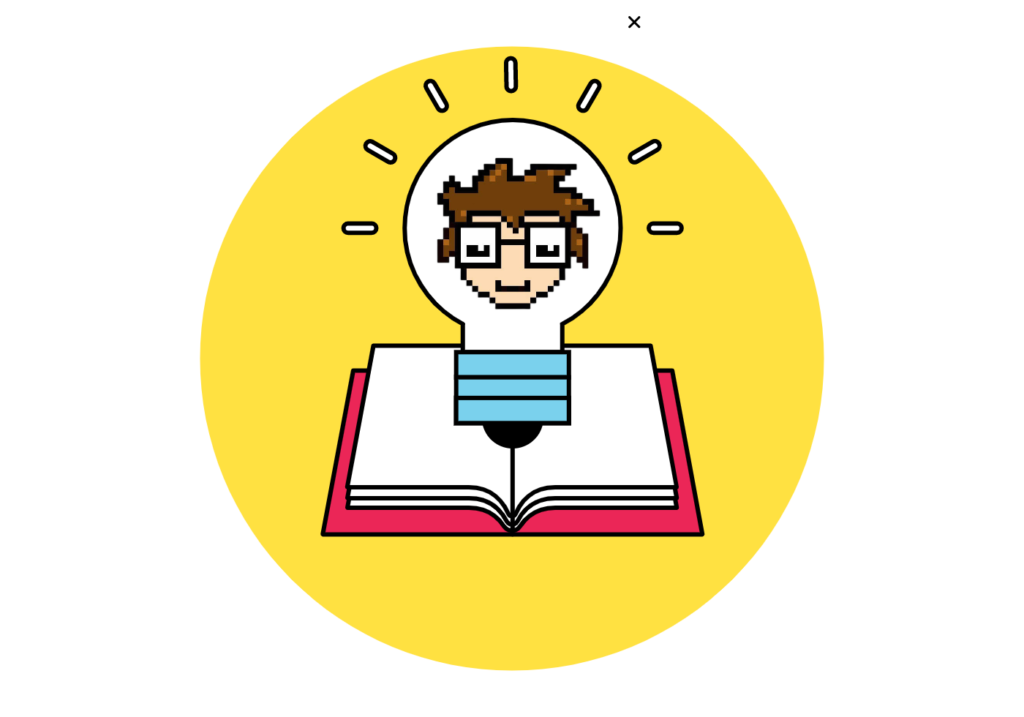The following posts have been individually constructed from my personal teaching philosophy document. This post is part 8 in my teaching philosophy series.
To date, I have published:
- Part 1, My introduction
- Part 2, Navigating my path to university
- Part 3, Pursuing university via the Enriched Support Program
- Part 4, Life after graduation
- Part 5, Exploring experiential learning and creative thinking
- Part 6, Shaky foundations
- Part 7, Revolutionizing library instruction by uniting robots and dinosaurs
As I evolve in my role as a librarian, I place a strong emphasis on continuous metacognitive growth – the awareness and understanding of one’s own thought processes. I achieve this through reflective writing and research on my blog, known as the 8 Bit Librarian. Here, I journal about the topics that most intrigue me in the realms of teaching and education. While I’ve always had an interest in blogging, it took on a more serious dimension during my pursuit of an MLIS, particularly in INFO 287 – The Hyperlinked Library, where Dr. Michael Stephens encouraged us to utilize blogging platforms for sharing and reflecting on our class readings. It was the rich and profound conversations stemming from these blog posts that revealed to me the powerful reflective potential of blogging.
Since then, I’ve continuously blogged about a wide range of topics as they arise in my work. Reflective writing allows me to delve into and develop the fleeting thoughts and ideas that emerge throughout my workday.
This approach to learning has left a lasting impact on me. I believe that self-reflection is a crucial aspect of what we do. I apply this philosophy in the classroom through discussions and blogs. In person, I engage the class with questions and promote peer-to-peer learning. In online spaces, such as Brightspace, I utilize discussion board posts. However, discussion posts can sometimes fall flat when no one responds. That’s why I consider it essential to actively engage with and respond to students’ posts.

In the summer of 2023, I designed a workshop for another EMCP library program. I introduced a new digital WordPress platform called the 8 Bit Experiment, described as “a digital playground to experiment with various new projects and ideas I’m working on.” My session aimed to transition students from the traditional printing models taught in the Book Arts Lab (earlier in the week) to the more accessible realm of digital publishing. Students had the opportunity to compare and contrast these two printing methods using the WordPress blogging platform. Additionally, the session aimed to equip students with skills that would make them more information-conscious in our increasingly digital world. Many students dedicated significant time to crafting their blog posts and reflecting on topics of their choice, ranging from fashion and gaming to animals, books, and their favorite television shows. As part of the exercise, I also encouraged students to comment on their peers’ blog posts. This exercise introduced students to the concept of conversation, an increasingly vital aspect of scholarship and academia and one of the six frames that make up the Association of College & Research Libraries (ACRL), “Scholarship as Conversation”.
Utilizing blog posts not only allows me to share my personal development but also provides readers with the opportunity to learn and grow alongside me. I strongly advocate for the significance of sharing our learning experiences with others, as it is essential for personal growth beyond the confines of isolation.
Lesson 10: Reflection is important for continuous growth and learning.
Header photo by Juan Davila on Unsplash
My teaching philosophy was designed and influenced by the guide from Western University’s Centre for Teaching and Learning titled Writing a teaching philosophy statement.

